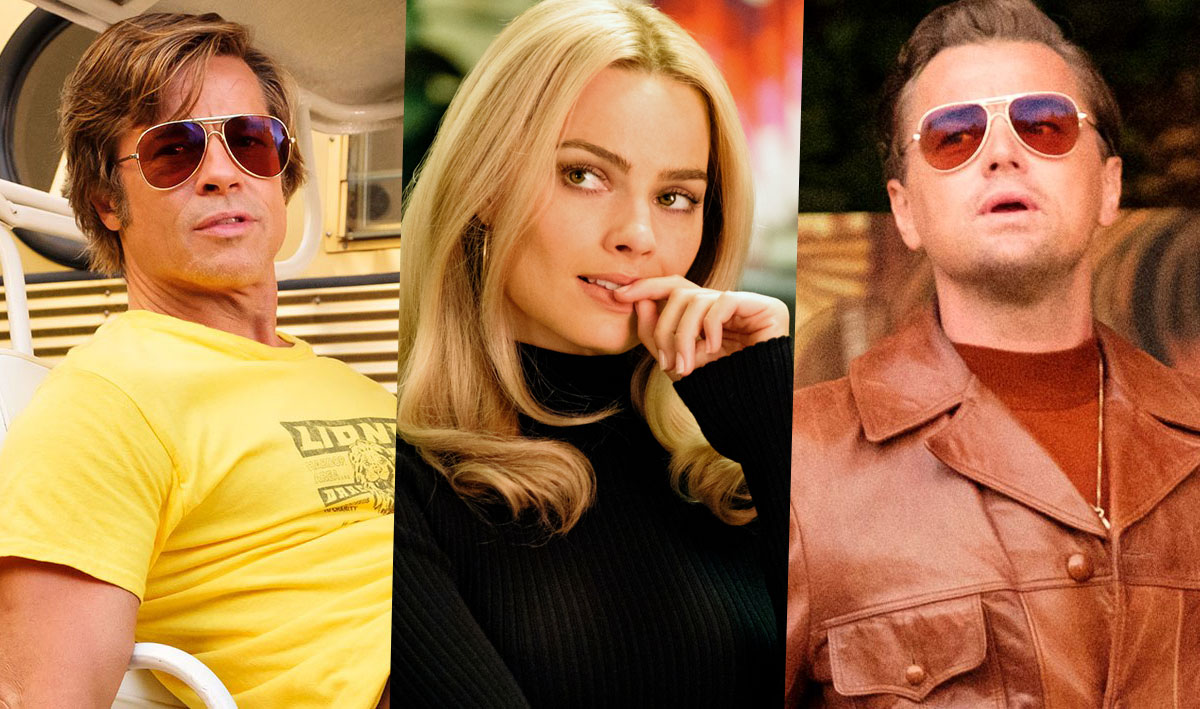“For men, identity comes from work,” Michael Hainey says in the Esquire cover story interview with the stars of Quentin Tarantino’s new film, Leonardo DiCaprio and Brad Pitt, as well as the controversial auteur himself.
READ MORE: 2019 Cannes Film Festival: The 21 Most Anticipated Movies
Seated around Hainey, the stars and their director agree. “To be a young leading man is to be macho and masculine and sexy and handsome and chiseled,” Tarantino says, of the previous expectations for leading men, which undergo a major transformation in the 1960s. The director continues, “Now, in 1969, the new leading men are the exact opposite. They are skinny, shaggy-haired guys. There’s a pansexuality about them.”
That unexpected shift in mores is Tarantino’s central focus in “Once Upon a Time… In Hollywood,” which premiered in competition amidst much anticipation at the Cannes Film Festival. For Rick Dalton, a declining TV Western star, a rapidly shifting job market spells the impending demise of his starry career. Luckily, he’s buoyed by his former stunt double-turned-chauffeur, Cliff Booth (Pitt), whose steady stream of supportive advice includes the empowering affirmation, “You’re Rick fucking Dalton.”
READ MORE: the 100 Most Anticipated Films Of 2019
The film also pivots to Rick’s next-door neighbors, the it girl of the moment Sharon Tate (Margot Robbie) and her husband, Roman Polanski (a briefly visible Rafal Zawierucha) — then duly turns to the famous band of hippies at Spahn Ranch. But among these other plotlines, it’s undeniable that first-time collaborators DiCaprio and Pitt’s buddy-comedy dynamic is the driving force of the film, with its relentless, battery-charged energy. If Tarantino’s Esquire interview is any indication — plus this week’s press conference, which saw the artful dodging of a question about the brutality against women in the film — it’s pretty clear that ‘Once Upon a Time’ is a fairy tale for a particular kind of Hollywood, tailored for a select few.
READ MORE: Summer Movie Preview: 35 Films You Shouldn’t Miss
Like Tarantino’s other titles known to employ historical revisionism to right wrongs, ‘Once Upon A Time’ continues that reputation by reinterpreting one of the grisliest stories in Hollywood history. (At the risk of violating Tarantino’s highly publicized plea against spoilers, no further details will be divulged.) The crucial point here is that the film is a fairy tale: This is not A Study of Hollywood, or A Biography of Hollywood, but Once Upon a Time In Hollywood.
READ MORE: Summer Movie Preview: 35 Films You Shouldn’t Miss
Still, the question remains: Whose fairy tale is this? At the heart of ‘Once Upon a Time’ is a man who increasingly feels like an outsider in the industry that shaped him, who reclaims his power through violence, though the film prefers to frame it abstractly as “the loss of innocence.” Robbie’s Sharon Tate, though briefly accessible through a touching scene in a movie theater, is largely sidelined, and even shot typically from head to toe in a languid, sleazy sweep. It doesn’t take an expert to identify at whom the film looks, versus who’s doing the looking. (Tarantino also denied that Robbie’s character was ignored at the morning’s press conference, saying bluntly, “I reject your hypothesis.”) If a man’s identity comes from work, a woman’s comes from… appearances? family? Besides Tate at the movies, the film doesn’t really stop to ask.
Ultimately, the film is nostalgic for an era that championed the leading man and celebrated established power. But is it wrong to say that it could’ve been a lot worse? The anxiety about Tarantino’s handling of the Manson murders, still a tricky and sensitive subject, has, for the most part, waned — mostly because the film’s revisionism is benevolent, at worst neutral, even if it embraces in its own odd way the typical adulation of a male hero. (Another question remains… Are we really dying to see the female gaze from Tarantino, when we could easily have it from another, better-suited director?)
Tarantino himself has identified ‘Once Upon a Time’ as the most personal work of his oeuvre, a recollection of the Los Angeles that served as the backdrop for much of his childhood in 1969, and the traces of a six-year-old Tarantino growing up in the wake of the Manson murders are apparent throughout the film. Though the film has its self-indulgences and its foibles, its treatment of Tate doesn’t really hinder the fact that it’s a pleasure to watch Tarantino work, in the place he knows best. Even at its most expectedly violent, expectedly flawed… ‘Once Upon a Time’ is, against all odds, unexpectedly sweet.





